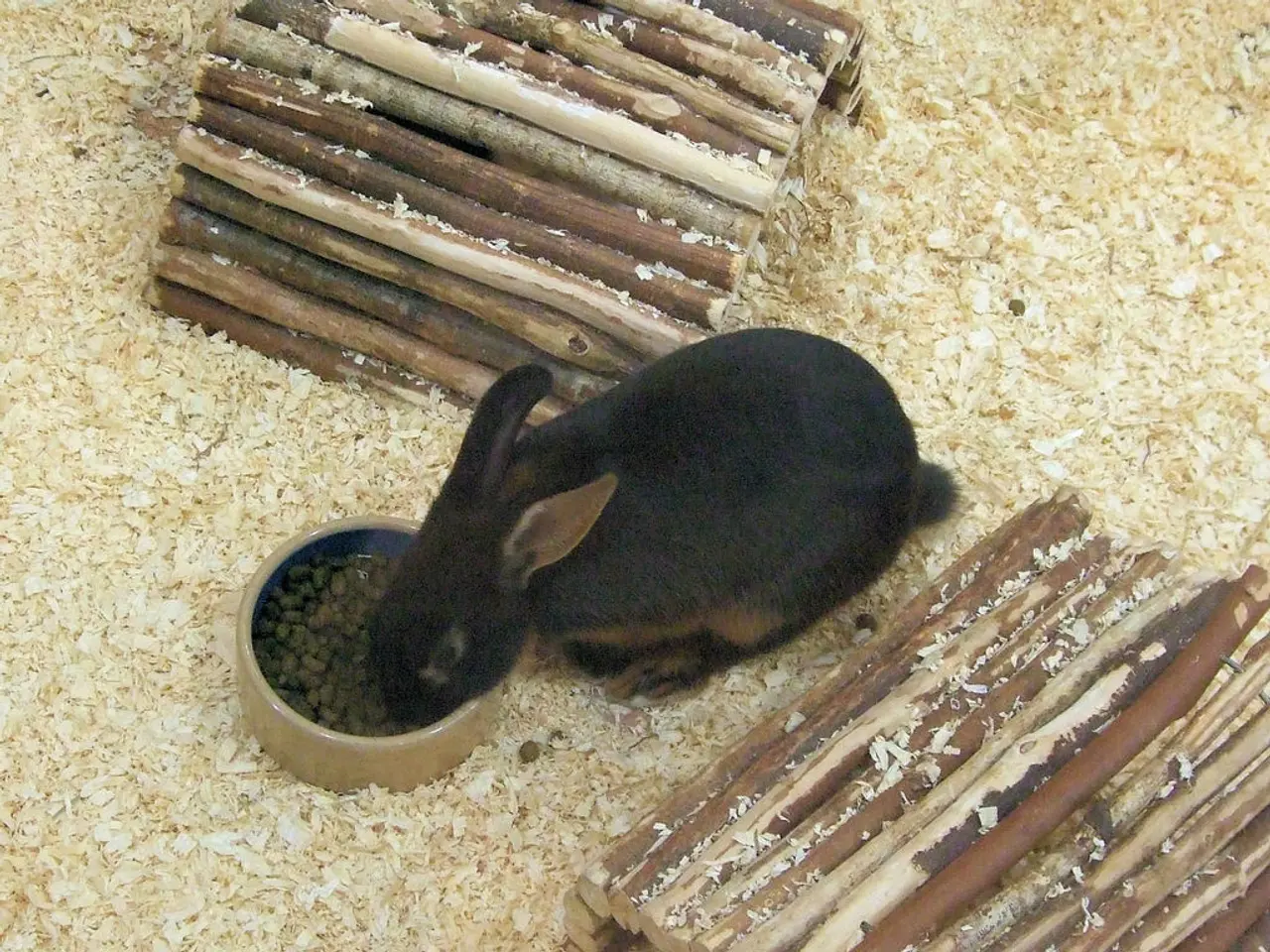Top-Tier Rabbit Fare for 2025: The Edibles We'd Treat Our Hopping Buddies With
In the world of rabbit care, providing a balanced diet is crucial for the health and well-being of these adorable pets. Let's dive into the key components of a rabbit's diet and explore the best options for hay and pellets.
Firstly, it's essential to understand that a rabbit's diet is primarily made up of grass or the best hay for rabbits. Among the top choices are timothy hay, orchard grass hay, and meadow hay. These hays are essential because they provide the high fiber content necessary to maintain healthy digestion and wear down rabbits' continuously growing teeth.
Timothy hay is considered the gold standard for adult rabbits due to its ideal nutrient profile, including a balance of fiber and softness, especially if it is 2nd cutting with leafy and soft stems. This hay encourages proper dental wear, preventing overgrown teeth that can cause pain and eating difficulties.
Orchard grass hay is a softer, sweeter-smelling alternative well-suited for picky or allergy-prone rabbits and encourages hay eating due to its palatability. This quality is particularly beneficial as hay consumption is vital for healthy gut motility and preventing gastrointestinal stasis, a common and serious condition in rabbits.
Meadow hay and other grass hays like oat, rye, barley, or bermuda are also important as they contain various micronutrients and promote gastrointestinal health.
Hay is essential in a rabbit’s diet because it provides high fiber, encourages proper dental wear, keeps rabbits mentally stimulated, and promotes better consumption and overall health. Rabbits should have unlimited access to good-quality grass hay at all times to ensure digestive health and dental care. Alfalfa hay is generally not recommended for adult rabbits due to its higher calcium and protein content.
When it comes to pellets, there are several factors to consider. A good quality pellet diet should provide nutrients and additional fiber, be uniform in shape and size, and contain no artificial preservatives, colors, or flavors. Some pellets are designed for specific life stages, such as young rabbits, older rabbits, or junior and dwarf rabbits. It's essential to choose a pellet suitable for your rabbit's age and breed.
Some pellets also contain probiotics and prebiotics for digestive health, herbs to promote intestinal health, and natural ingredients like sun-cured timothy grass hay, ground oats, ground flax seed, and ground wheat. However, be aware that some pellets may contain soybean meal, which can lead to protein waste and increased urination.
Lastly, remember that the rabbit food market offers various options, so it's essential to research and choose the best food for your pet. A product's name, like "pro health," may be backed by a formula developed by an animal nutritional expert, and some brands even offer light options that are grain-free, low in calories, and rich in natural ingredients.
By understanding the importance of hay and pellets in a rabbit's diet, you can ensure your pet enjoys a long, healthy, and happy life. Happy feeding!
- In addition to hay, pellets play a significant role in a rabbit's nutrition, providing essential nutrients and extra fiber.
- To maintain dental health, it's crucial to choose pellets that are uniform in shape and size, and free from artificial preservatives.
- For certain life stages, specific pellet formulations are available, such as those for young, older, or dwarf rabbits, ensuring they receive the right balance of nutrients.
- Some high-quality pellets also contain beneficial additives like probiotics and prebiotics, herbs for intestinal health, and natural ingredients like timothy grass, oats, flax seed, and wheat.
- It's important to avoid pellets containing soybean meal, as it can lead to increased urination and protein waste.
- When selecting food for your pet rabbit, it's essential to research and choose a product with a well-rounded formula, like those endorsed by animal nutritional experts.
- A rabbit's lifestyle, including mental stimulation, can be enriched through the use of toys available in the home-and-garden section, creating a nurturing and happy environment for your pet cat, dog, or other pocket pets.




